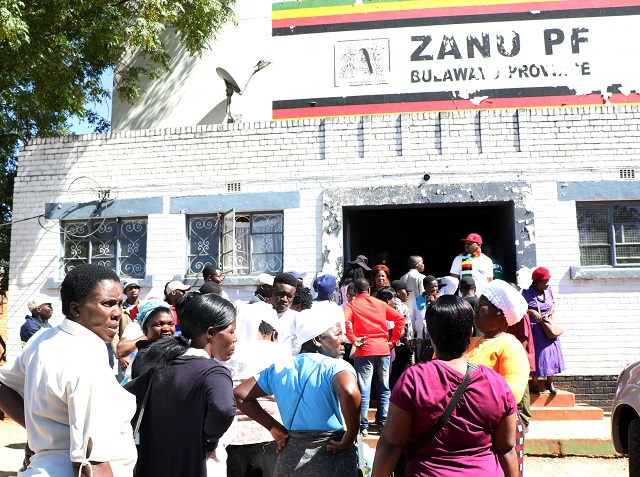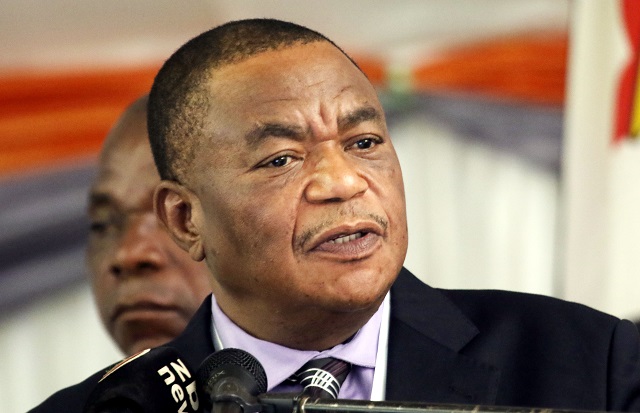EDITORIAL COMMENT: Primaries are gone, now focus on harmonised elections

Zanu-PF’s two-day primary elections were held on Sunday and yesterday with incidents here and there and a high turnout at many polling stations countrywide.
Official results were expected to start trickling in last night for the line-up of the revolutionary party’s candidates to contest in the forthcoming harmonised elections to take shape.
There were a few hiccups in some places. For example, ballot papers arrived late in some areas while in others they were delivered to wrong places. As voting material was delivered late or at wrong places, among other logistical challenges, the ruling party national elections commission (NEC) ordered that voting be extended to yesterday. In other cases, names of approved contestants were missing on the ballot papers. In parts of Masvingo ballot papers actually ran out given the high turnout.
NEC chairperson Lieutenant-General Engelbert Rugeje (Retired) acknowledged the challenges but was happy that corrective action was immediately taken including extending voting to yesterday, printing of more ballot papers and so on. He attributed the late delivery of ballot papers to a breakdown, on Friday, of the printing machine at Jongwe Printers, a ruling party company in Harare. The fault, he said, was later fixed and the press resumed printing.
Zanu-PF is a mass party with membership running into millions. It is the only party that is strictly national so has structures at every corner of the country.
More than 2 000 candidates battled it out for parliamentary seats while at least 6 000 sought the right to represent the party in council elections. The party set up 3 250 polling stations. Therefore, it cannot be easy for a party so large to stage incident-free primary elections, putting all the logistics in place for each and every one of its members, some in the remotest parts of the country to be able to vote and do so on one day. The Zimbabwe Electoral Commission, which exists to exclusively run elections after every five years, is better able to do that.
Lt Gen Rugeje announced on March 29 that the party would elect its candidates on May 5, but in mid April a decision was made to have the primaries held a week earlier. This could have partly precipitated the logistical hitches that were witnessed on Sunday.
Despite the challenges, Zanu-PF must be happy with the manner in which it organised the campaigns of its prospective candidates last week and the actual balloting over the past two days. We saw rival candidates campaigning together, each one of them getting time to outline their visions for their wards, constituencies or women’s advancement for those seeking to represent the party in parliament under the women’s quota. In scenes that were never seen before, rival candidates could be seen at the top table bowing their heads to pray before they held the joint campaign rallies.
Through this approach, the ruling party was able to eliminate violence and negative rhetoric that have marred previous internal campaigns. The party was able to ensure that its members focused on what matters not unproductive name-calling.
Furthermore, Zanu-PF must have been encouraged by the high turnout witnessed in many areas. The mass participation which showed in long, winding queues at polling stations and ballot papers running out, is normally associated with national elections. It was a roaring statement of popularity by the party. It must have sent shivers down the spines of the opposition for if an internal election could draw so many people in Epworth, Masvingo, Bulawayo and other places, how about during a national election. These were primaries in which only Zanu-PF members participate. They will be joined by many more supporters in the forthcoming harmonised elections.
After the full set of results is announced, probably by the end of business today, we urge losers to support the winners as they proceed to campaign to be councillors, MPs and senators. They are encouraged to appreciate that they lost an internal battle; the real war awaits the party as a whole in July/August.
That is the war that must be won at all costs. The decision by the party leadership to make the losers of the primaries campaign managers of the winners should go a long way in minimising acrimony and ensure that the party heals faster in time for the national elections. We say healing should be faster because cadres who voted for the loser are less likely to be alienated from the winner as the person they wanted to be the official party candidate will remain in the system.
Public attention was drawn to some malpractices in Bulawayo and other areas where rivals tried to buy votes or tamper with the voters’ rolls. The cadres who were behind these tricks must be condemned in the strongest of terms. President Mnangagwa has spared no effort urging the party to uphold the spirit of fairness, to shun violence and avoid other electoral chicanery but some in his party were up to mischief on Sunday.
These claims must be thoroughly investigated and ways found to punish the fraudsters even if it means ordering reruns or disqualifying them. The message must be hammered into their minds that the will of the rank and file must prevail. Only popularly elected members must be Zanu-PF’s official candidates in the forthcoming elections. Those who secure that right through fraud will cost the party when the time of reckoning comes.












Comments